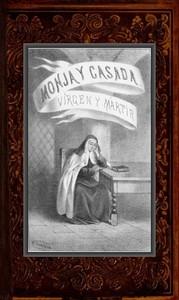Read this ebook for free! No credit card needed, absolutely nothing to pay.
Words: 36995 in 11 pages
This is an ebook sharing website. You can read the uploaded ebooks for free here. No credit cards needed, nothing to pay. If you want to own a digital copy of the ebook, or want to read offline with your favorite ebook-reader, then you can choose to buy and download the ebook.
THE STAFF
Fair Milla and brown Tora, Broad Tinka and slender Nora.
Brown Tora, on the other hand, we do not know, and she shall remain a little longer shrouded in mystery.
A year ago a new sheriff was appointed to that part of the country, a secretary in a government office, called Jens Tue, otherwise known as the ladies' man. Instead of becoming resident he went abroad with his wife, whose chest was rather delicate.
This lady had, by jealousy and insincerity, missed her true foothold in life, and both in her thoughts and actions she flitted like a bird from one interest to another; she wished to appear so immensely delighted, so taken up with intellectual questions and music--until one day her strength proved insufficient; she collapsed.
Her husband carried her off with him, and as during their tour he was all that was pleasant and amiable, her bird-like nature required nothing more. She came home again, well and happy.
It would have seemed more natural for Nora to remain at Christiania with her friends and relations. It was said certainly that Fru Rendalen's school was so very superior, but that could hardly be the whole explanation; all were curious about the Sheriff's daughter when she appeared. She was a fashionable young lady, tall and slender, and if not exactly elegant, still stylish in dress and manner; a little supercilious; still she did not give offence--she was too pliable for that, too quick as well, entirely taken up with the fancy of the moment. She gave an impetus to all she did, and people forgive a great deal for that.
But no one would forgive her letter-writing, or the incredible number of letters which she received weekly! Not the teachers, for she neglected the school work; not her companions, for she neglected them; nay, she had hardly looked at them! She went to sleep every night with inky fingers and a heap of letters beside her bed; either she was writing letters or reading letters, or crying over them. During every recreation time she ran upstairs to add a few lines, or to read a letter over again which she had just received. As she was worried by the pursuit of the others, she disappeared after every meal. Where was she? There was a hunt for her, and she was found up in the top attic, writing of course, this time upon a large barrel; she was blue with cold. She had left at least twenty particular friends behind her at Christiania; all the twenty wrote to her, and all received answers, long answers--one must never be shorter than the others. Happily, she had another passion, and it often chances that one thing counteracts another. She was crazy about music. She sang snatches of songs with great feeling, but, partly because at her age she could not sing much at a time, partly because she had not training enough to carry out a delicate interpretation, she could never properly render anything as a whole. But even so, she was much admired by her companions, and by none more than Tinka Hansen. For Tinka was herself musical, but in another and more unpretending fashion. Like her sister Augusta, she had developed early, especially in her powers of conversation. Katinka was even-tempered, bright, dependable; everything she played, and that was a great deal, she knew by heart. It was therefore she who obediently accompanied Nora's songs. But her execution was not worth much; Nora very soon took her in hand, and was not satisfied until she had brought her to the point she wished; Tinka was extremely grateful for all this.
One day Nora discovered Tinka's powerful contralto, and from that time there were duets and duets. Their age suggested prudence, and if Nora would not use moderation, Tinka both would and could. Nora was used to command, so there were quarrels; but Tinka was so accustomed to conquer when her conscience told her that she was right, that Nora was completely vanquished. This was the foundation of their friendship. To have a friend who at once admired and restrained her was especially safe and good for Nora. But Nora acted upon Tinka like a succession of impressions of art upon one who has seen nothing up to that time. As Nora was absolutely confidential, it seemed to the conscientious Tinka that this ought to be returned.
Every one knew it, but not to a living being would she have admitted it: Tinka was engaged. He, the man, had just gone to college; she had a letter from him once a week; for many reasons she did not wish to have them oftener. He was called Frederik--Frederik Tygesen; his father was the stipendiary judge Tygesen, here in the town. Nora was "the first person in the world" whom she had told this to.
But there was a limit to those whom she could conquer in the new senior class, and this did not please her; in fact, she principally coveted the friendship of those who withheld it, but all the same she could not pass this boundary. The fact was that a queen had reigned there before her--nay, was there still. Her ways of gaining power were different from Nora's; whether they were less or not, depended on who it was who measured them. First of all, she was the richest heiress in the town; secondly, if there were the slightest sign of rain, snow, or cold wind, a servant drove up to fetch her home, and then it was a question who should drive home with her.
She had almost always something good with her; her pocket-money was of that description that the more she spent, the more she had; the resources of her dainty little purse were incredible in this respect. She got money from her mother, from her father, from two unmarried uncles. As well as this she was pretty, discreet, attentive; no one had ever known her to use a hasty word, or be rough, even at the gymnasium; she was always very polite and a little subdued. In her eyes, to forget yourself was the worst of crimes. She had lived, so to say, wrapped up in cotton wool, and one felt this whenever one approached her. We know her already; she is Emilie Engel.
Free books android app tbrJar TBR JAR Read Free books online gutenberg
More posts by @FreeBooks

: Kavaluus ja rakkaus: Murhenäytelmä viidessä näytöksessä by Schiller Friedrich Ahlqvist August Translator - Tragedies; German drama Translations into Finnish


: Schetsen uit Peru De Aarde en haar volken Jaargang 1875 by Marcoy Paul - Peru Description and travel








